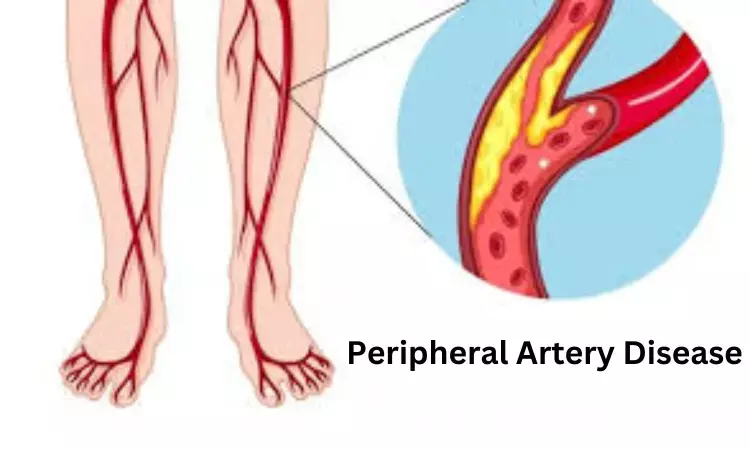- Home
- Medical news & Guidelines
- Anesthesiology
- Cardiology and CTVS
- Critical Care
- Dentistry
- Dermatology
- Diabetes and Endocrinology
- ENT
- Gastroenterology
- Medicine
- Nephrology
- Neurology
- Obstretics-Gynaecology
- Oncology
- Ophthalmology
- Orthopaedics
- Pediatrics-Neonatology
- Psychiatry
- Pulmonology
- Radiology
- Surgery
- Urology
- Laboratory Medicine
- Diet
- Nursing
- Paramedical
- Physiotherapy
- Health news
- Fact Check
- Bone Health Fact Check
- Brain Health Fact Check
- Cancer Related Fact Check
- Child Care Fact Check
- Dental and oral health fact check
- Diabetes and metabolic health fact check
- Diet and Nutrition Fact Check
- Eye and ENT Care Fact Check
- Fitness fact check
- Gut health fact check
- Heart health fact check
- Kidney health fact check
- Medical education fact check
- Men's health fact check
- Respiratory fact check
- Skin and hair care fact check
- Vaccine and Immunization fact check
- Women's health fact check
- AYUSH
- State News
- Andaman and Nicobar Islands
- Andhra Pradesh
- Arunachal Pradesh
- Assam
- Bihar
- Chandigarh
- Chattisgarh
- Dadra and Nagar Haveli
- Daman and Diu
- Delhi
- Goa
- Gujarat
- Haryana
- Himachal Pradesh
- Jammu & Kashmir
- Jharkhand
- Karnataka
- Kerala
- Ladakh
- Lakshadweep
- Madhya Pradesh
- Maharashtra
- Manipur
- Meghalaya
- Mizoram
- Nagaland
- Odisha
- Puducherry
- Punjab
- Rajasthan
- Sikkim
- Tamil Nadu
- Telangana
- Tripura
- Uttar Pradesh
- Uttrakhand
- West Bengal
- Medical Education
- Industry
Semaglutide Boosts Walking Capacity in PAD and Type 2 Diabetes, STRIDE Trial Finds

USA: The STRIDE trial has demonstrated that semaglutide significantly enhances walking capacity in individuals with peripheral artery disease (PAD) and type 2 diabetes (T2D). After 52 weeks of treatment, patients receiving semaglutide experienced a 21% improvement in maximum walking distance compared to just 8% in the placebo group.
"The study found a significant difference between the two groups, with an estimated treatment ratio of 1.13 (95% CI 1.06–1.21; p=0.0004), highlighting the potential of semaglutide in improving mobility and quality of life for patients with PAD and diabetes," Marc Bonaca, of CPC Clinical Research and University of Colorado School of Medicine in Aurora reported at the American College of Cardiology (ACC) annual meeting. The study was also published online in The Lancet.
PAD, a progressive vascular disease that restricts blood flow to the lower limbs, affects over 230 million people worldwide and is associated with reduced functional capacity and increased cardiovascular risk. Despite its widespread prevalence, effective treatment options to enhance mobility and overall well-being remain limited. In the STRIDE trial, a phase 3b, double-blind, randomized, placebo-controlled study, the researchers aimed to assess whether semaglutide could improve walking ability and alleviate PAD-related symptoms in patients with concurrent diabetes.
Conducted across 112 clinical sites in 20 countries, the trial enrolled 792 participants aged 18 years and older, all diagnosed with T2D and PAD with intermittent claudication. Eligible participants were required to have a Fontaine stage IIa classification (walking ability over 200 meters) and an ankle-brachial index of 0.90 or lower or a toe–brachial index of 0.70 or lower. Participants were randomly assigned in a 1:1 ratio to receive either a weekly 1.0 mg subcutaneous injection of semaglutide or a placebo for one year.
The study results showed that patients receiving semaglutide demonstrated superior improvements in walking ability compared to those given a placebo. In absolute terms, semaglutide led to a median improvement of 26.4 meters over the placebo in maximum walking distance, suggesting its effectiveness in addressing the mobility limitations associated with PAD in diabetic patients.
In terms of safety, the incidence of treatment-related adverse events was low. Serious adverse events were reported in 1% of patients in the semaglutide group and 2% in the placebo group, with gastrointestinal issues being the most common. Importantly, no treatment-related deaths were observed.
"These findings reinforce the potential of semaglutide as a therapeutic option for improving functional outcomes in patients with PAD and T2D. Further research is warranted to explore its benefits in PAD patients without diabetes and to better understand the mechanisms underlying its positive effects on vascular health and mobility," the authors concluded.
Reference:
Semaglutide and walking capacity in people with symptomatic peripheral artery disease and type 2 diabetes (STRIDE): a phase 3b, double-blind, randomised, placebo-controlled trial. Bonaca, Marc P et al. The Lancet, Volume 0, Issue 0
Dr Kamal Kant Kohli-MBBS, DTCD- a chest specialist with more than 30 years of practice and a flair for writing clinical articles, Dr Kamal Kant Kohli joined Medical Dialogues as a Chief Editor of Medical News. Besides writing articles, as an editor, he proofreads and verifies all the medical content published on Medical Dialogues including those coming from journals, studies,medical conferences,guidelines etc. Email: drkohli@medicaldialogues.in. Contact no. 011-43720751


